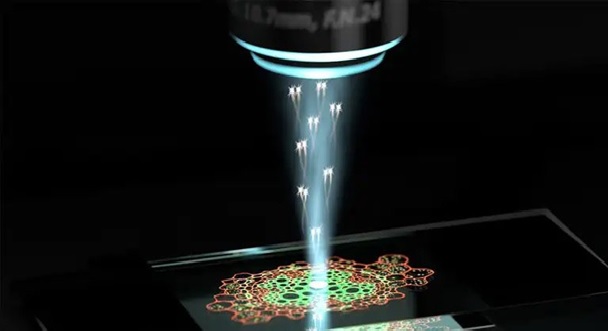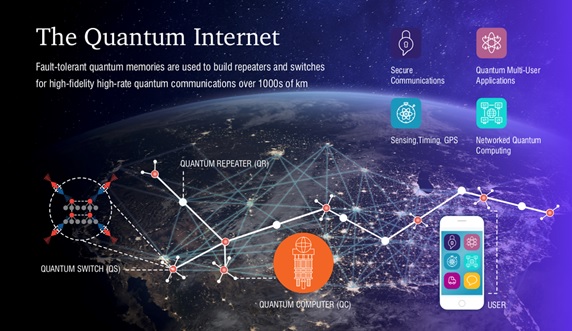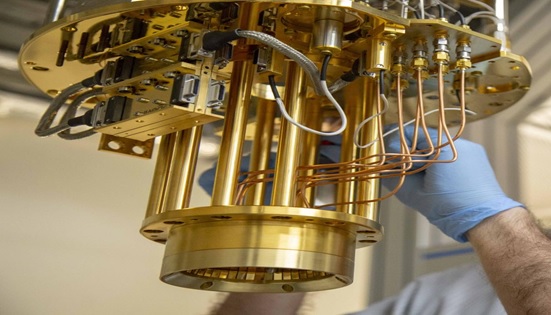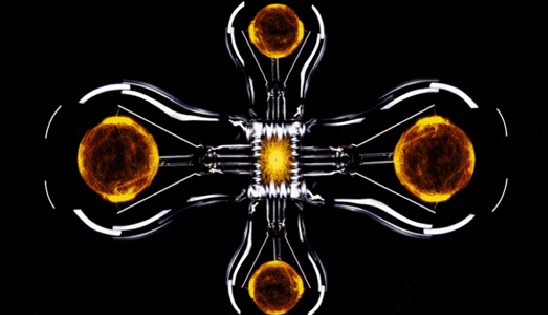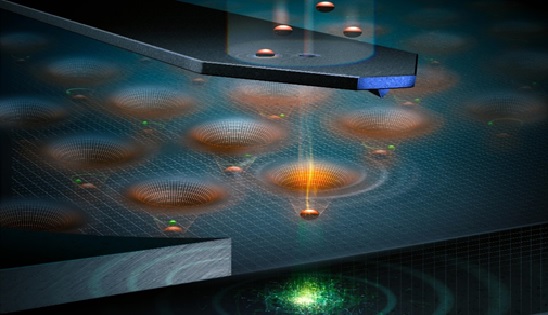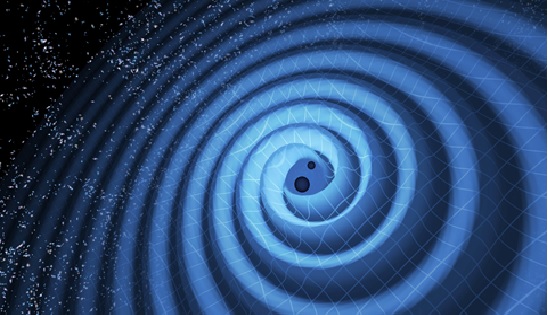Improving Qubit Storage for Ultra Secure Quantum Telecommunication Network
Now, it is leading to developments in cryptography (the study of secure communications methods that only enable the sender and recipient of a message to view its contents), with the goal of creating ultra-secure quantum telecommunications networks.[1].
Quantum theories enable perfect authenticity and confidentiality for information (a qubit) when it is transmitted between two interlocutors by a particle of light (a photon), within an optical fibre. The phenomenon of superposition let the sender know immediately whether the photon conveying the message has been intercepted.

Figure 1.Improving Qubit Storage for Ultra Secure Quantum Telecommunication Network.
Developed during the 20th century, quantum physics has enabled scientists to describe the behavior of atoms and particles as well as certain properties of electromagnetic radiation. By breaking with classical physics, these theories generated a real revolution and introduced notions without equivalent in the macroscopic world such as superposition, which describes the possibility for a particle to be in several places at once, or entanglement, which describes the ability of two particles to affect each other instantaneously even at a distance ('spooky action at a distance').
Quantum physics has enabled many technological advances. It is now opening up new fields of research in cryptography (the art of coding messages) with the aim of developing ultra-secure telecommunications networks. There is one obstacle, however: after a few hundred kilometers within an optical fiber, the photons that carry the qubits or 'quantum bits' (the information) disappear. They therefore need 'repeaters', a kind of 'relay', which are partly based on a quantum memory. By managing to store a qubit in a crystal (a "memory") for 20 milliseconds.[2]
Memorizing the signal :
However, there is a major obstacle to the development of long-distance quantum telecommunication systems: beyond a few hundred kilometers, the photons are lost and the signal disappears. Since the signal cannot be copied or amplified -- it would lose the quantum state that guarantees its confidentiality -- the challenge is to find a way of repeating it without altering it by creating 'repeaters' based, in particular, on a quantum memory.[3]
Improving qubit storage :
In 2015, the group led by Mikael Afzelius, a Senior Lecturer in the Department of Applied Physics at the Faculty of Science of the University of Geneva (UNIGE) were successful in storing a qubit carried by a photon for 0.5 milliseconds in a crystal (a ‘memory’).
This method enables the photon to transfer its quantum state to the atoms of the crystal before it is vanished. However, the event did not last long enough to facilitate the building of a larger network of memories, which is a necessary precondition for the advancement of long-distance quantum telecommunications.
An efficient system in ten years :
However, there are still several challenges to be met. "The challenge now is to extend the storage time further. In theory, it would be enough to increase the duration of exposure of the crystal to radio frequencies, but for the time being, technical obstacles to their implementation over a longer period of time prevent us from going beyond 100 milliseconds. However, it is certain that these technical difficulties can be resolved," says Mikael Afzelius.[4]
References:
- https://www.innovationnewsnetwork.com/qubit-storage-secure-quantum-telecommunications-networks/19685/
- https://scitechdaily.com/quantum-telecommunications-breakthrough-new-world-record-for-qubit-storage/
- https://www.sciencedaily.com/releases/2022/03/220322111258.htm
- https://www.nixatube.in/tech-news-improving-qubit-storage-for-ultra-secure-quantum-telecommunications-networks-tech-innovation-2022/
Cite this article:
Gunasekar M (2022), Improving Qubit Storage for Ultra Secure Quantum Telecommunication Network, AnaTechMaz, pp.30



